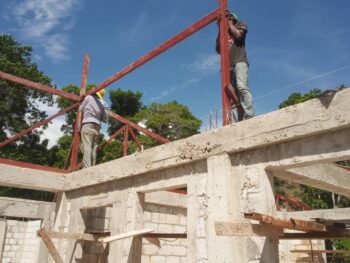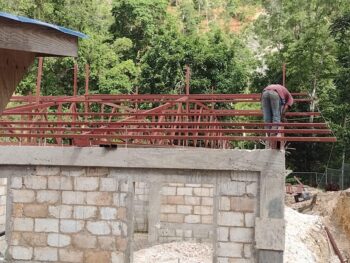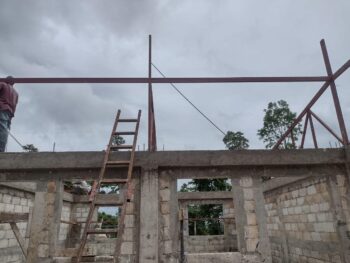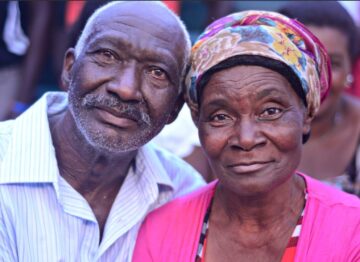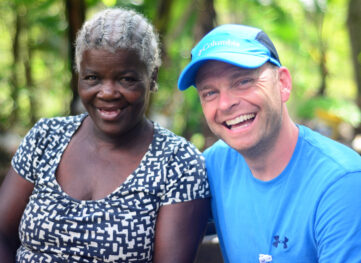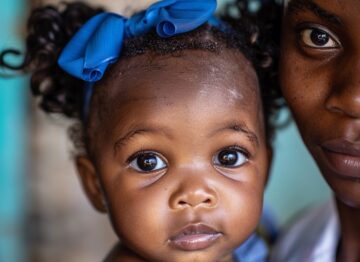Medical
Comprehensive Healthcare Approach
At the Haiti Health Initiative (HHI), we are committed to providing a wide range of essential medical and healthcare services to the people of Timo. Our multifaceted approach encompasses both preventative care and acute treatment to address the diverse health needs of the community.
Prenatal and Well-Child Care
One of our key priorities is delivering basic prenatal and well-child care to ensure the health and wellbeing of mothers and their children. We strive to offer these critical services during our visits to the region.
Acute Care and Disease Prevention
In addition to preventative care, we also provide treatment for a variety of acute conditions, including infections, arthritis, gastritis, headaches, and other common ailments. Parallel to this, we educate the community on prevention and management of these prevalent health issues.
Capacity Building for Sustainability
To foster long-term sustainability, we train community health workers in basic medical procedures and techniques. This empowers the local population to maintain their own health without relying solely on external healthcare providers.
Clinic Development and Partnerships
Looking to the future, we plan to establish a healthcare clinic in Timo, which would be staffed by Haitian healthcare professionals. To this end, we aim to partner with the Haitian Ministry of Health and collaborate with family medicine residency programs at McKay and Utah Valley Hospitals.
Holistic Approach to Health
Our medical projects also involve working closely with local organizations, such as FPF, a group of farmers committed to improving their condition and interested in healthcare. By taking a holistic approach, we strive to address the multifaceted needs of the community.
Donate to Our Medical Projects
Your donation to our medical and healthcare projects can make a significant difference in the lives of the people of Timo. Your support will help us expand our preventative and acute care services, build local healthcare capacity, and work towards establishing a sustainable healthcare system in the region.
Anemia
Anemia treatment and prevention was among HHI’s earliest and worst health programs, illustrating how severe the disease was in 2011. The impact of amenia on fetal health, maternal health, and the development of children was among the worst in the world. Driven largely by poorly balanced nutrition, anemia frequently results in fetal and maternal deaths together with reduced brain development and lifelong diminished brain performance. Nutrition deficiency is exacerbated by environmental dangers such as hookworms that are spread because of the lack of shoes in the culture.
Beginning in 2011, HHI began twice-yearly clinics staffed by volunteers from the U.S. and Canada. Following testing, Timo patients were treated with iron-rich vitamins. Shoes for children also became a feature of the program, and that remains through the donations of our supporters. The prevalence of anemia decreased more than 20 percent during the clinicians’ visits. Perhaps more importantly, the hemoglobin values increased, and average anemia severity decreased substantially.
Anemia semi-annual clinics ended because of political violence, but HHI has obtained used equipment for testing and the medical program is hopeful it will soon be resumed. Like hypertension, anemia diagnosis and treatment will be sustained largely through trained Haitian clinicians and who visit the community regularly, depending on travel safety.
For more information, see the research summaries and studies by HHI co-founder Marc-Aurel Martial, et al, 2019 through Google Scholar.com
2024 Highlights
Latest Haiti Health News
Haiti Health Initiative Projects
Making a difference, one project at a time
Revitalizing Haitian farmland to nourish communities, combat food insecurity
[More]
+1 (801) 830-3043
mail@haitihealthinitiative.org
Haiti Health Initiative aims to improve the overall health and well being of rural Haitians, one community at a time. We seek to accomplish this through providing education and services in primary health care, dental care, public health, and nutrition within each community at risk.
If you have questions about Haiti Health Initiative, contact
Marc-Aurel Martial at
mmartial@haitihealthinitiative.org
or at 801-830-3043.
© All Copyrights 2024 by Haiti Health Initiative

